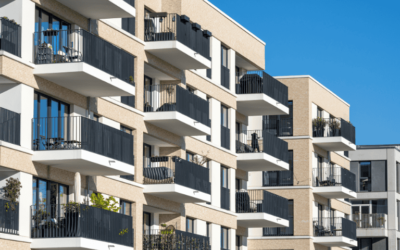Energy efficient incentives are vital for encouraging the adoption of technologies and practices that reduce energy usage in business and residential buildings. Financial incentives can take multiple forms such as rebates, grants, loans, or bonds to help offset energy-efficiency improvement projects. Incentives also include income tax credits and deductions, along with sales tax credits and reductions on eligible products.
These incentives are not only making it more feasible to make energy-efficient investments, but they are also helping to increase product awareness. Energy-efficient incentives offered by the state vary, but here’s a look at what’s available in Michigan.
With the differences between states, if you have a national or multi-regional footprint, understanding the differences between state programs is key. Check out our blog feed for more state-by-state incentive and rebate programs.
Incentives for Michigan
The incentives for MI include the following.
- Michigan Energy Codes Compliance Program: The program provides funding for the creation of documents to help improve energy code compliance rates for commercial and residential customers.
- Building Operator Training Program: Funding from the program is used in the training of public and non-profit building managers helping them improve energy efficiency.
- Event Sponsorship Funding Opportunity: Funding is available to help support conferences, workshops, and other events that help increase awareness of energy efficiency and renewable energy technologies.
- Community Energy Management Program: Funding from this program helps community organizations improve energy efficiency in their buildings. This includes supporting implementation efforts, energy audits, and the installation of renewable energy sources.
- Agri Energy and Sustainable Farming: The program provides funding to help small rural and agricultural businesses implement energy efficiency and renewable energy sources on the site.
- Small Manufacturer’s Energy Waste Reduction Pilot Program: Manufacturers can receive funding to use toward the implementation of processes that improve operational efficiency.
- Michigan 2030 Districts Program: The program supports three Michigan districts (Detroit, Ann Arbor, and Grand Rapids) to help organizations achieve their energy-efficient goals in the 2030 districts.
- Water Leak Pilot Program: Funding from the program is used to inform, recruit, enroll, and complete water efficiency projects in two Michigan communities. The work includes completing supply-side piping/fixtures to reduce water and energy usage.
- Water Energy Nexus Program: The research project is looking at energy losses associated with service line leaks in municipal water distribution systems. The losses involve the pumping and treatment of energy from the extraction, treatment, and delivery of water to the service line leaks.
- Charge Up Michigan: Funding from the program supports EV charger placement across Michigan. Charger location aligns with the EV Charger Placement Optimization Plan created by a grant through Michigan’s State Energy Office. Costs are ideally split between the site host, utility, and EGLE.
- Optimized EV Charger Placement Plan: This plan is researching the ideal locations of EV chargers in Michigan to allow for travel across the state in electric vehicles. The research is being completed in multiple states that include highways, select cities, the Lake Michigan circuit, and analyzing tourist data.
To learn more about these energy-efficient incentives in Michigan, contact us. We can also provide additional details about various federal financial incentives that are available in your area. Contact Incentive Rebate360 today by calling 480-653-8180, emailing [email protected], or schedule a call that fits your needs by clicking the button below.
Reference: American Council for an Energy-Efficient Economy (2023). State and Local Policy Database. ACEEE. https://database.aceee.org/state/financial-incentives





0 Comments